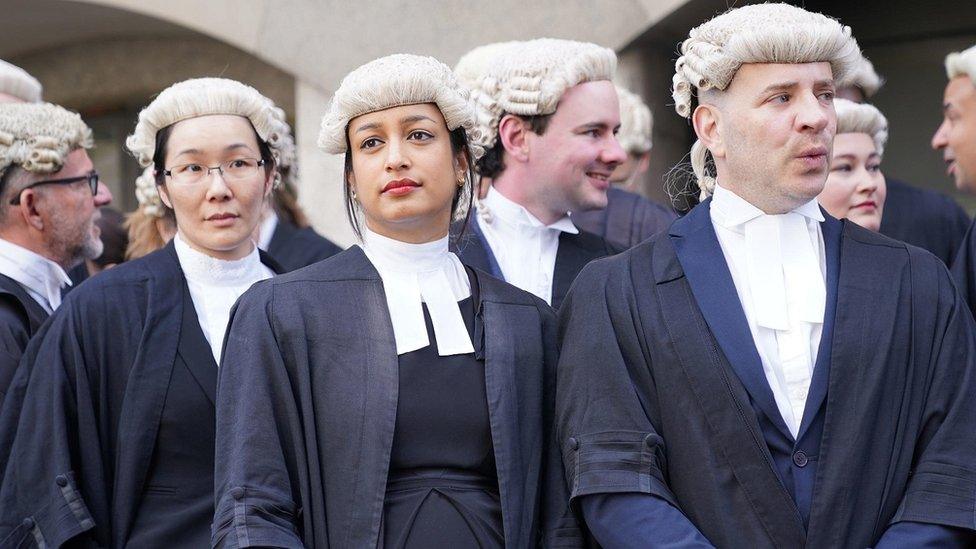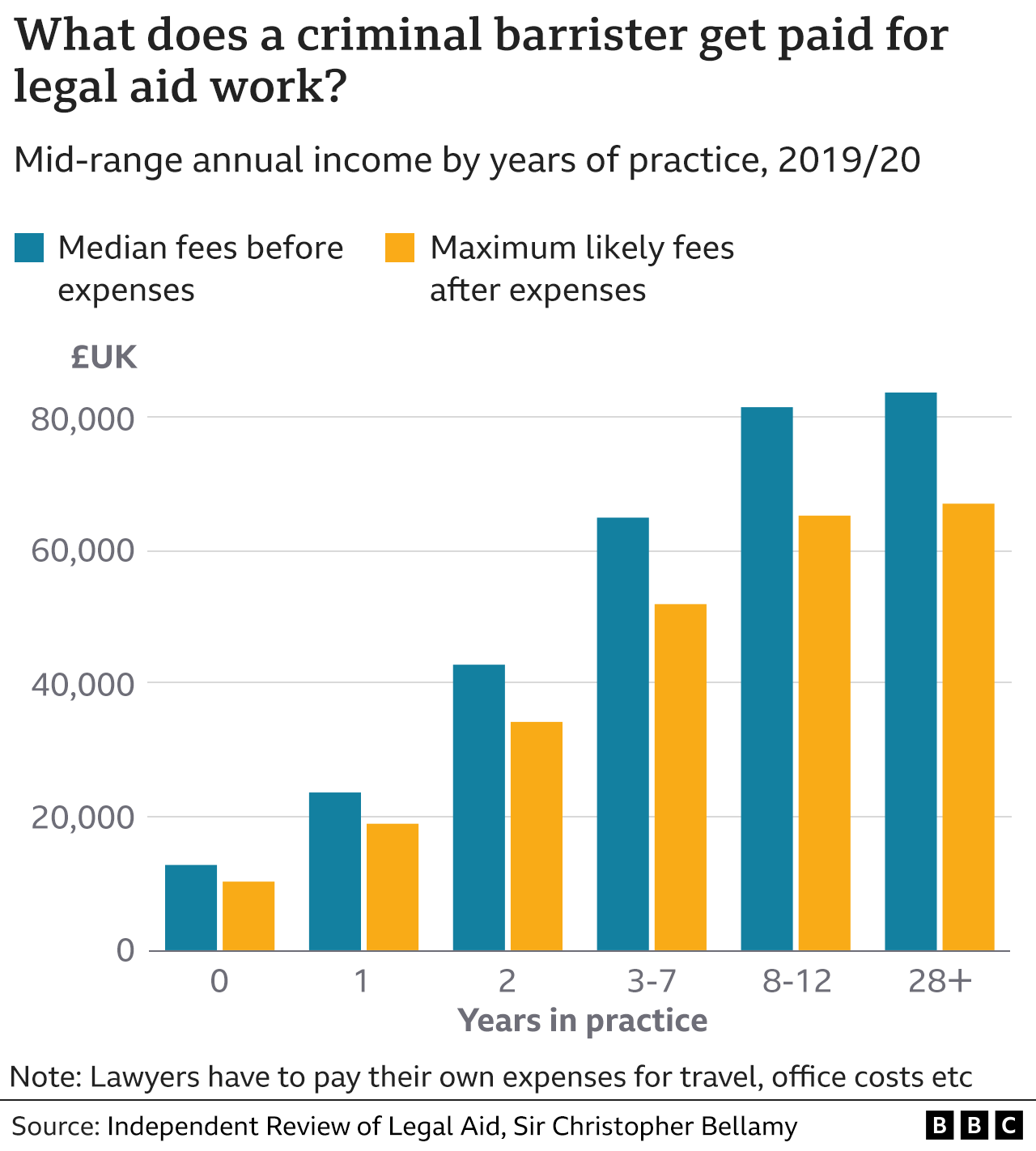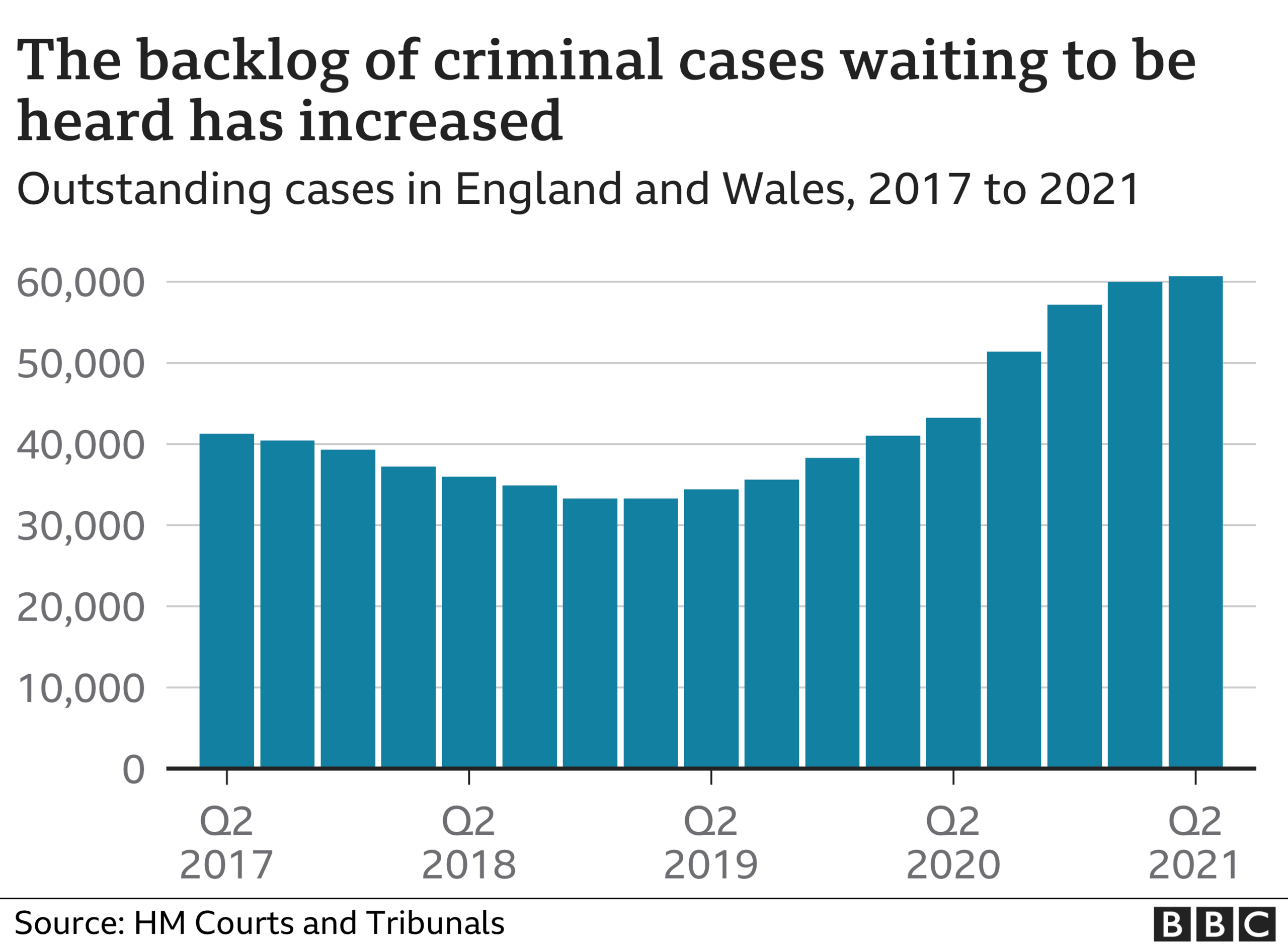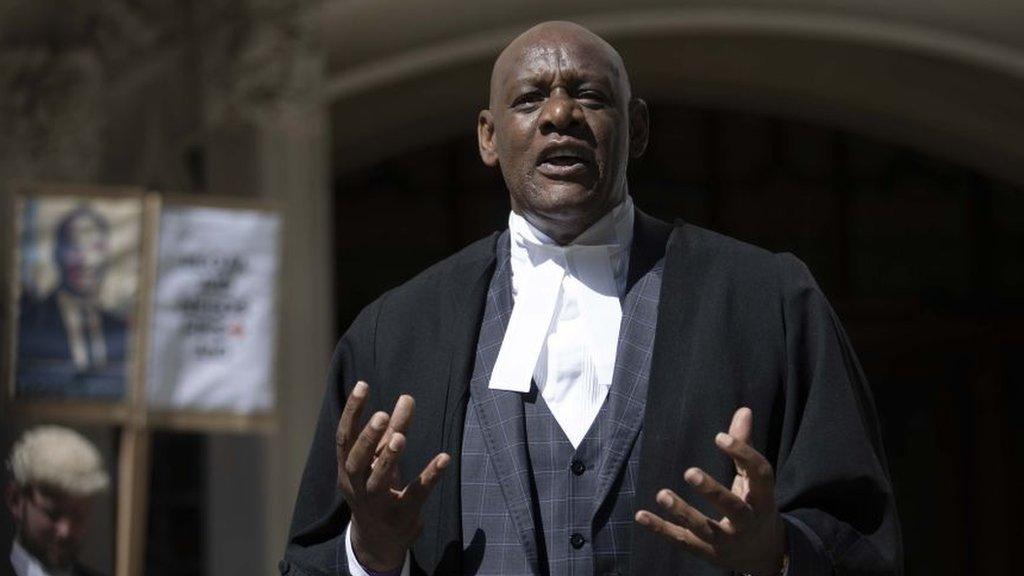Barristers start indefinite strike action over pay in England and Wales
- Published

Barristers in England and Wales are starting an indefinite, uninterrupted strike, in an escalation of industrial action over pay which began in April.
The Criminal Bar Association (CBA) walkout is likely to worsen existing court delays, with tens of thousands of cases already waiting to go to trial.
The CBA wants a 25% rise in legal aid fees for representing defendants who could not otherwise afford lawyers.
Justice Minister Sarah Dines has called the escalation "irresponsible".
But Kirsty Brimelow, who chairs the CBA, says it is an attempt to "hold up the criminal justice system from complete collapse".
Although the all-out strike formally starts on Monday, members of the CBA have staged intermittent walkouts since the end of June, escalating to week-long strikes on alternate weeks throughout August.
Barristers will hold a series of rallies in support of the strike on Tuesday, gathering outside the Supreme Court in London and at court buildings in Cardiff, Manchester, Birmingham, Bristol and Leeds.


At least 7,000 criminal cases go to Crown Court judges every month. So it's plain to see that if barristers strike, the historically high backlog and delays will grow.
Just over a week ago, a judge at the Old Bailey warned that serious trials for murder could be postponed for a year if they don't start on time due to the strike.
Elsewhere, there are murder trials due to start or continue in Northampton and Luton, to pick just two locations.
Ministers say the strike is irresponsible - but criminal barristers respond that they're the ones really concerned about the health of justice.
Figures show that their numbers are reducing year-on-year - and that can be seen in the statistics.
In the first three months of this year, 370 scheduled trials, for which victims, defendants and witnesses had prepared, were put off because of a shortage of prosecution and defence lawyers - and 48 because of a lack of judges.

The government has offered a 15% rise from the end of September, which the CBA has rejected, saying it would not kick in soon enough or apply to existing cases.
It says the criminal justice system has been run down by years of underfunding, with some junior barristers making less than the hourly minimum wage and more than a quarter having quit the profession in the past five years.
"Barristers have stopped soldiering on through downtrodden courts," said Ms Brimelow, who called for "proper investment in barristers who deliver the justice".
"This is not a 'world-class justice system', as set out as the vision of the Ministry of Justice. It is not even a functioning justice system," she added.

At the end of June the courts backlog in England and Wales stood at 58,973 cases, having almost doubled since 2019.
According to Ministry of Justice figures, 6,235 court hearings were disrupted by the strikes between 27 June and 5 August, including 1,415 trials.

The Ministry of Justice rejects applying the fee rise to existing cases, saying it would "cost a disproportionate amount of taxpayers' money".
Ministers say a typical criminal barrister would earn £7,000 more a year under the offer, adding that before expenses, median earnings for criminal barristers in 2019-20 were £79,800, although it admits junior barristers often earn a fraction of this.
Ms Dines reiterated the government's view that the move to an all-out strike "is an irresponsible decision that will only see more victims face further delays and distress".

Is your court case delayed as a result of the strike? Are you a barrister taking part? Share your experiences by emailing haveyoursay@bbc.co.uk, external.
Please include a contact number if you are willing to speak to a BBC journalist. You can also get in touch in the following ways:
WhatsApp: +44 7756 165803
Tweet: @BBC_HaveYourSay, external
Please read our terms & conditions and privacy policy
If you are reading this page and can't see the form you will need to visit the mobile version of the BBC website to submit your question or comment or you can email us at HaveYourSay@bbc.co.uk, external. Please include your name, age and location with any submission.
- Published22 August 2022
